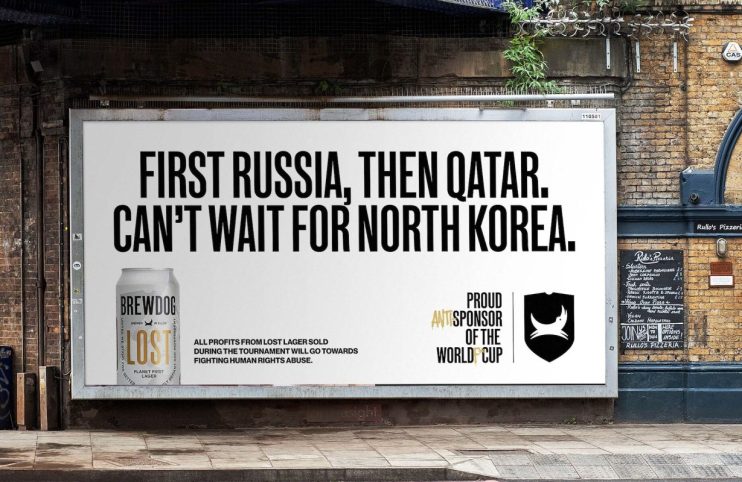Brewdog’s Qatar ad backlash should be a lesson for other brands

The backlash to Brewdog’s ‘anti-World Cup’ campaign is a lesson for other brands
It was inevitable that a football World Cup in Qatar would eventually drag the business world into the sporting world. Sponsors of the four-yearly jamboree are being forced to confront awkward questions – and others are taking the opportunity to make hay.
One such is Brewdog, who elected to bring attention to labour rights abuses with an ad campaign in which they paint themselves as the sponsor of the World F*Cup (geddit). As it goes, it’s not a bad campaign, and the “First Russia, then Qatar, we can’t wait for North Korea” tagline raised a smile.
The problem for Brewdog, of course, is that the firm is not exactly squeaky clean itself when it comes to employee rights – with management having spent much of the last couple of years attempting to extricate themselves from widespread accusations of creating a toxic workplace culture. It did not take long for unions to point this out, and nor did it take long for social media to note that Brewdog’s decision to continue to screen the World Cup looked rather askew with its principles.
On the latter accusation, the company said that showing the football would result in higher sales of its Lost Lager, the profits from which would go to human rights charities. Again, it does not take tremendously long to also figure that Brewdog might sell other (extortionate) beers alongside, the profits of which presumably are unlikely to be shared so liberally.
In the grand scheme of things, Brewdog haven’t done much wrong. But the reaction is a cautionary tale in the world of modern business: consumers aren’t interested in ad campaigns and rhetoric, but what you’re actually doing.
It’s a worthwhile lesson not just for the Scottish brewers but for myriad corporate giants. That’s in sharp relief at Cop-27, with green credentials being waved around like Glastonbury flags in the middle of an air-conditioned conference centre by the Red Sea. On all fronts, consumers and investors want a little more action, and a little less conversation.